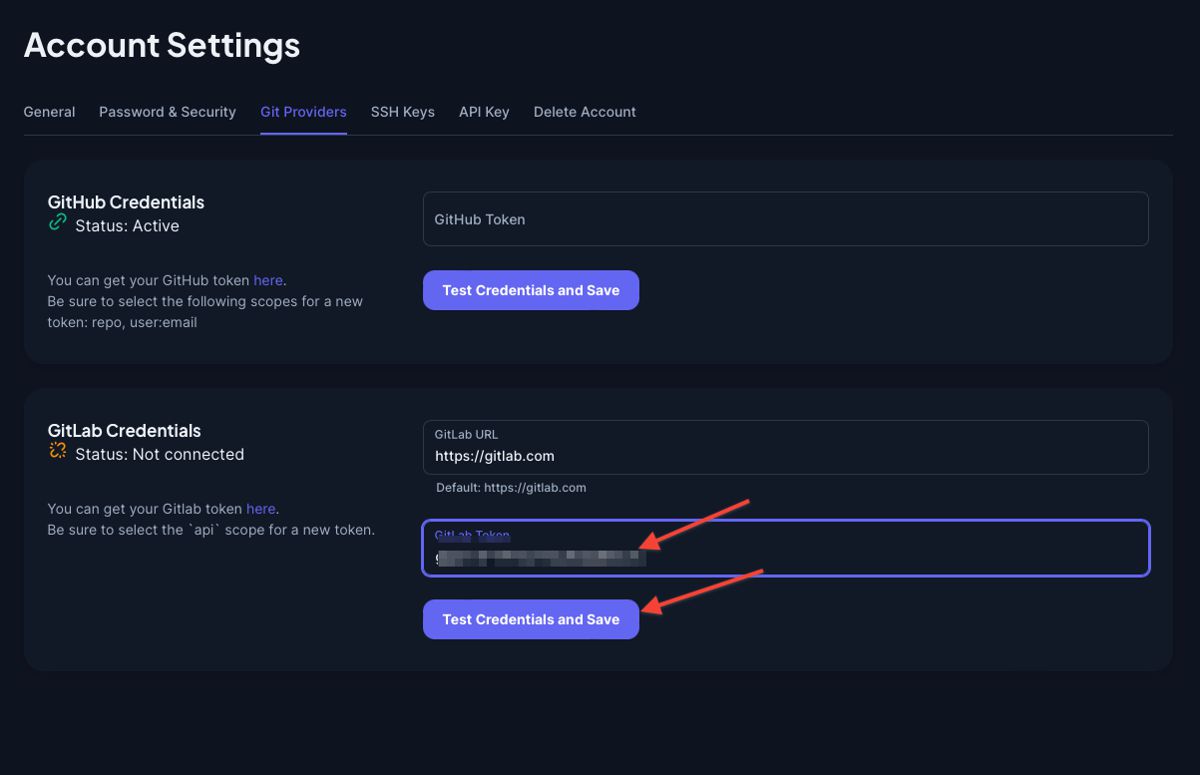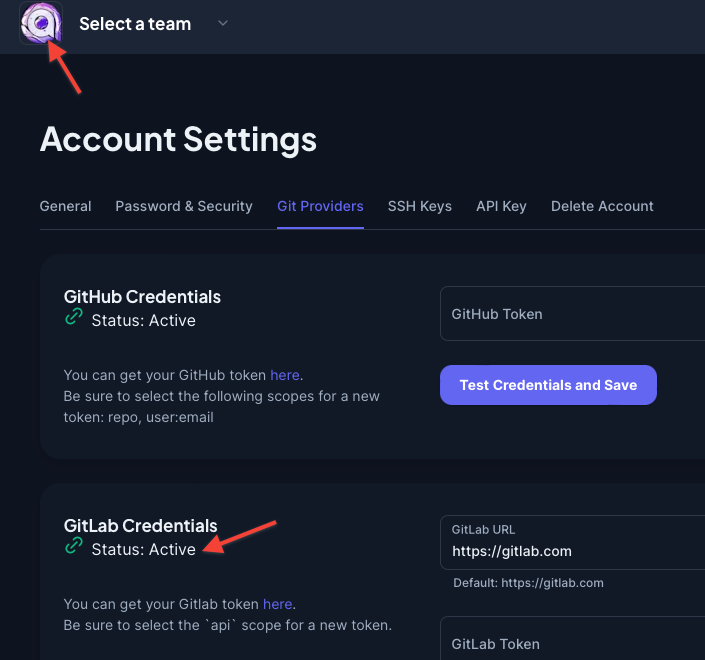Google Cloud Platform offers a huge number of services and if your project needs integration with their services it might be a great idea to deploy your app on their platform to be closer to their API.
In this article you will see how how to deploy a Django project on GCP Virtual Machine.
If you are looking for tutorial for another cloud provider checkout out one of these:
- Deploy Django on Hetzner Cloud
- Deploy Django to Digital Ocean Droplet
- Deploy Django to AWS Lightsail
- Deploy Django to AWS EC2
- Deploy Django on Linode
- Deploy Django on Azure
Table of contents¶
Requirements¶
- An application to deploy
- Appliku Account
- Google Cloud Platform Account
Django Application¶
The application used for this tutorial can be found here: https://github.com/appliku/djangotutorial
Your app should be pushed into a git repository. You can use GitHub, GitLab.
For ease of deployment we have the following recommendations:
- have the
requirements.txtfile in the root of your git repository. Don't forget to addgunicorn(or alternative) andpsycopg2-binary==2.9.5for Postgres support (orpsycopg[binary]) - Your app needs to respect environment variables like
DATABASE_URLfor the database credentials,ALLOWED_HOSTSfor the list of allowed domains,SECRET_KEYandREDIS_URLif applicable. - Please, don't forget to have DEBUG turned off when you deploy to a publicly accessible environment.
We have a full How to Start and Deploy a Django Project if you want to learn more
Also: check our SpeedPy.com SaaS boilerplate
Appliku Account¶
If you don't already have an Appliku Account create it by going here: https://app.appliku.com/
Click on "Add a server"

Pick a Custom Server:

Select this key, we will need it at server creation step.

Google Cloud Platform Account¶
If you don't already have a GCP account sign up here
After you have signed up and created a project go to VM Instances: VM Instances
Click on "Create Instance"

Give instance a name or leave a default one.
Select a region. It can be closer to you (useful during development) or closer to your target audience.

Select a machine time. For the purpose of this tutorial we will pick the smallest one 1 shared core and 1GB RAM.

Scroll down to the "Boot Disk" section and click "Change"

Select Ubuntu, Ubuntu 20.04 LTS for x86/64 architecture, set disk size to 30 GB.

In the "Firewall" section check both Allow HTTP and HTTPS traffic.

In "Advanced Options" -> "Security" -> "VM Access" -> "Add manually generated SSH Keys" click "Add Item"

In the SSH Key field you need to paste the key offered to you in Appliku Dashboard, and add space + "gcpuser"

Scroll down and click "Create"

You will be taken to the list of all your instances where you will see a spinner indicating that your instance is being created.

Until it becomes green:

Now we need to allow access via SSH.
Click on "Setup up firewall rules"

Click on "Create firewall rule"

Here are the fields you need to set or change:
- Name: "ssh"
- Targets: "All Instances in the network"
- Source IPv4 ranges: 0.0.0.0/0
- Protocol and ports: Specified protocols and ports, TCP, 22
Scroll down and click "Create"

You will see that your rule has been created.

Let's go back to our VM instances.
Open the left side bar and go to Computer Engine -> VM Instances

Click on your VM instance.

A server details page will open. Scroll down and in the table "Network interfaces" find "External IP address". Copy it and switch back to Appliku Dashboard

Paste the IP address into the "IP" field, username should be "gcpuser" (remember what we added at the end of our SSH Key?), click "Check credentials and add server"

Your server has been added to your Appliku Team and setup will begin shortly.

It may take up to 10 minutes while Appliku sets up all packages and configures the server.
Wait until the field "Server Setup" says "Finished" and Resources gauges become alive.
If it says Error then you should go to the Setup Logs tab and see for errors.

Deploy Django Project on GCP¶
Click on the "Applications" menu link

You will get to the Git Provider selection.

Creating application from GitHub¶
Select the "Setup Credentials" for GitHub.

You need to get a personal token from GitHub.
Go to this link to create a token: https://github.com/settings/tokens

Click on Generate new token -> Generate new token(Classic) Fill in the note, select expiration date, check the "repo" checkbox and "user:email"


And click "Generate token".
Copy the token from the next page.

Go back to Appliku dashboard and paste the GitHub Token, and click Test Credentials and Save

Status must change to "Active".
Click on the logo in top left corner to get back to your team and go to Applications again and create an app, select GitHub.

Fill the form with the app name, select the repository with your application, branch and select the server, click on "Create Application".

You will see your app has been created, but not yet deployed.

Creating application from GitLab¶
Alternatively if you use GitLab you should add credentials for GitLab and create an app from GitLab.
Go to Applications menu link, Click "Add Application" and Setup credentials for GitLab.

You need to create a Personal Access Token here: https://gitlab.com/-/profile/personal_access_tokens
Give the key a name, set or clear expiration date, select "api" checkbox and click "Create Personal Access token"

Copy the token and paste it in Appliku dashboard.

After you click "Test Credentials and Save" the Status should turn green and say "Active".

Click on the logo to go back to your team, go to Applications, Add Application and select GitLab

Give your application a name, pick repository and the branch, select the server and click "Create Application"

Setup the app¶
Databases¶
First, create a Postgres Database. Click on Add Database on the right

Select the Postgres 16 option and click "Create database"

Your database will start deploying, wait for the deployment status to become "deployed".

Define processes¶
Let's tell Appliku how to run your app
On the Application Overview page you will see a red triangle saying "No processes found".
Click on the "Add Processes" button.

Add two processes:
- one MUST be called
webto answer to HTTP requests and command should begunicorn project.wsgi --log-file -(pay attention to the last dash). It can be slightly different for your project - second one MUST be called
releaseand this is the command that will be executed after each successful deployment. If not specified it will default topython manage.py migrate. I recommend to create a bash script if your app needs to run several commands executed on each release. In our example, the command isbash release.sh
Click save and deploy button, a deployment will start.
Environment variables¶
Go to the "Environment Variables" tab and add env vars needed for your project.
At least specify the SECRET_KEY and ALLOWED_HOSTS.
These variables should be used by your app you can check here how to do that: https://github.com/appliku/djangotutorial/blob/master/project/settings.py
The SECRET_KEY variable value should be some long hard to guess string.

The ALLOWED_HOSTS variable should be a list of domains on which your app is accessible. As I already mentioned above, don't hardcode this, but make your app respect this environment variable.
By default, each app in Appliku receives a subdomain APPNAME.applikuapp.com, so in our example it should be mydjangoapp.applikuapp.com. If you add custom domains, make a comma-separated list like this mydjangoapp.applikuapp.com,example.com,www.example.com.
You can disable the default subdomain in build settings.
When you are finished with environment variables click the "Save and deploy" button and deployment will start.
Reviewing application logs¶
From the Application Overview page you can go to App Logs to check if there are any errors.


Open your application¶

To access your app click on "Open App" and click on the domain name. It will open your app in a new window.